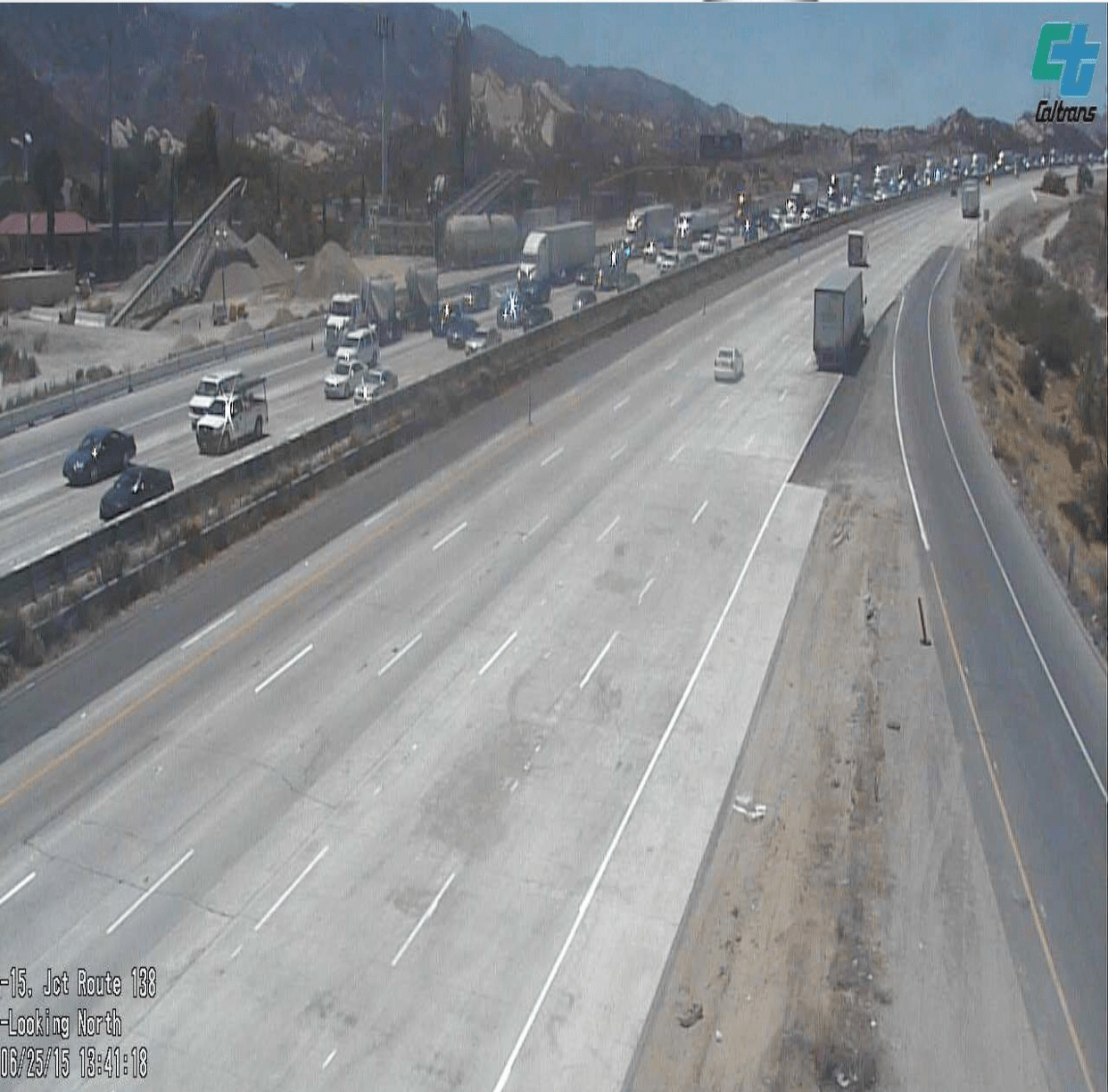Traffic Cajon Pass is a term that resonates with many Southern California commuters and travelers alike. Nestled within the San Bernardino Mountains, Cajon Pass serves as a crucial transportation corridor that connects the high desert regions with the bustling metropolis of Los Angeles. However, the traffic conditions at Cajon Pass can be a source of frustration for many. As a major route for freight trucks and daily commuters, this pass often experiences congestion, especially during peak hours and holiday seasons. Understanding the intricacies of traffic at Cajon Pass is essential for those who navigate this vital thoroughfare.
In recent years, traffic Cajon Pass has become a hot topic of discussion for both local residents and state officials. With the increasing population in nearby areas, the volume of vehicles traversing this route continues to rise. In addition to personal vehicles, the pass is heavily utilized by commercial trucks, further exacerbating the traffic issues. As such, many people are left wondering: What can be done to alleviate the congestion at Cajon Pass?
This article aims to explore the various factors contributing to traffic Cajon Pass, examine the potential solutions, and provide insights into the best practices for navigating this busy corridor. From understanding peak travel times to discussing road infrastructure improvements, we will delve into the complexities of this essential route. Join us as we uncover the layers of traffic Cajon Pass and offer valuable tips for travelers.
What Causes Traffic Congestion at Cajon Pass?
Traffic congestion at Cajon Pass can be attributed to several factors:
- High Volume of Vehicles: The pass is a critical link for both personal and commercial vehicles, leading to increased traffic volume.
- Geographic Limitations: The mountainous terrain restricts the number of lanes and road expansions.
- Accidents and Incidents: Collisions or breakdowns can quickly lead to significant delays.
- Weather Conditions: Heavy rain or snow can also impact traffic flow, creating hazardous conditions.
How Do Traffic Patterns Change Throughout the Day?
The traffic patterns at Cajon Pass are dynamic and fluctuate throughout the day. Understanding these patterns can help drivers plan their trips more effectively. Here’s a breakdown of typical traffic flow:
- Morning Rush Hour: Expect heavy congestion from 6 AM to 9 AM as commuters head to work.
- Midday Lull: Traffic tends to ease between 10 AM and 3 PM, providing a brief window for smoother travel.
- Evening Rush Hour: Similar to the morning, heavy traffic resumes from 4 PM to 7 PM as people return home.
- Weekend Traffic: Increased congestion can occur on weekends, especially during holidays and peak travel seasons.
Are There Alternative Routes Around Cajon Pass?
For those looking to avoid the traffic Cajon Pass, several alternative routes can be considered:
- Highway 138: This route runs parallel to Cajon Pass and can be a viable alternative for some travelers.
- Route through Lake Arrowhead: A scenic detour that may take longer but offers a beautiful drive.
- Backroads: Utilizing local roads can help bypass the main routes, although they may be less direct.
What Are the Long-Term Solutions for Traffic Cajon Pass?
Addressing the traffic challenges at Cajon Pass requires a multifaceted approach involving infrastructure improvements, policy changes, and public awareness. Some potential long-term solutions include:
- Road Expansion: Adding additional lanes to accommodate the growing number of vehicles.
- Improved Traffic Management Systems: Implementing advanced technology to monitor and manage traffic flow in real time.
- Public Transportation Options: Developing robust public transit options to reduce the number of individual vehicles on the road.
- Community Awareness Campaigns: Educating the public about peak times and alternative routes to ease congestion.
What Can Drivers Do to Navigate Cajon Pass Effectively?
For those who must travel through Cajon Pass, there are several strategies to navigate the area more effectively:
- Plan Ahead: Check traffic reports before leaving and plan your route accordingly.
- Avoid Peak Hours: If possible, schedule your travel outside of the busiest times.
- Stay Informed: Utilize navigation apps that provide real-time traffic updates and alternate routes.
- Practice Patience: Remember that travel delays are often unavoidable; staying calm can make the journey more pleasant.
Is There a Future for Cajon Pass with Ongoing Developments?
As Southern California continues to grow, the future of Cajon Pass will undoubtedly evolve. Ongoing discussions among local government, transportation agencies, and community stakeholders are crucial for developing effective traffic solutions. The potential for new projects, such as road expansions or innovative traffic management technologies, may pave the way for a more efficient travel experience through Cajon Pass. However, the community's involvement and awareness will be key to ensuring these developments align with the needs of all who rely on this essential route.
Conclusion: Understanding Traffic Cajon Pass
In conclusion, traffic Cajon Pass is a complex issue shaped by various factors, including vehicle volume, geographic constraints, and external conditions. By understanding the causes of congestion, exploring alternative routes, and implementing long-term solutions, we can work towards a more efficient travel experience for everyone. Awareness and preparation are vital for navigating Cajon Pass effectively, whether you’re a daily commuter or an occasional traveler. As we look to the future, ongoing developments and community participation will play a significant role in addressing the traffic challenges that lie ahead.




